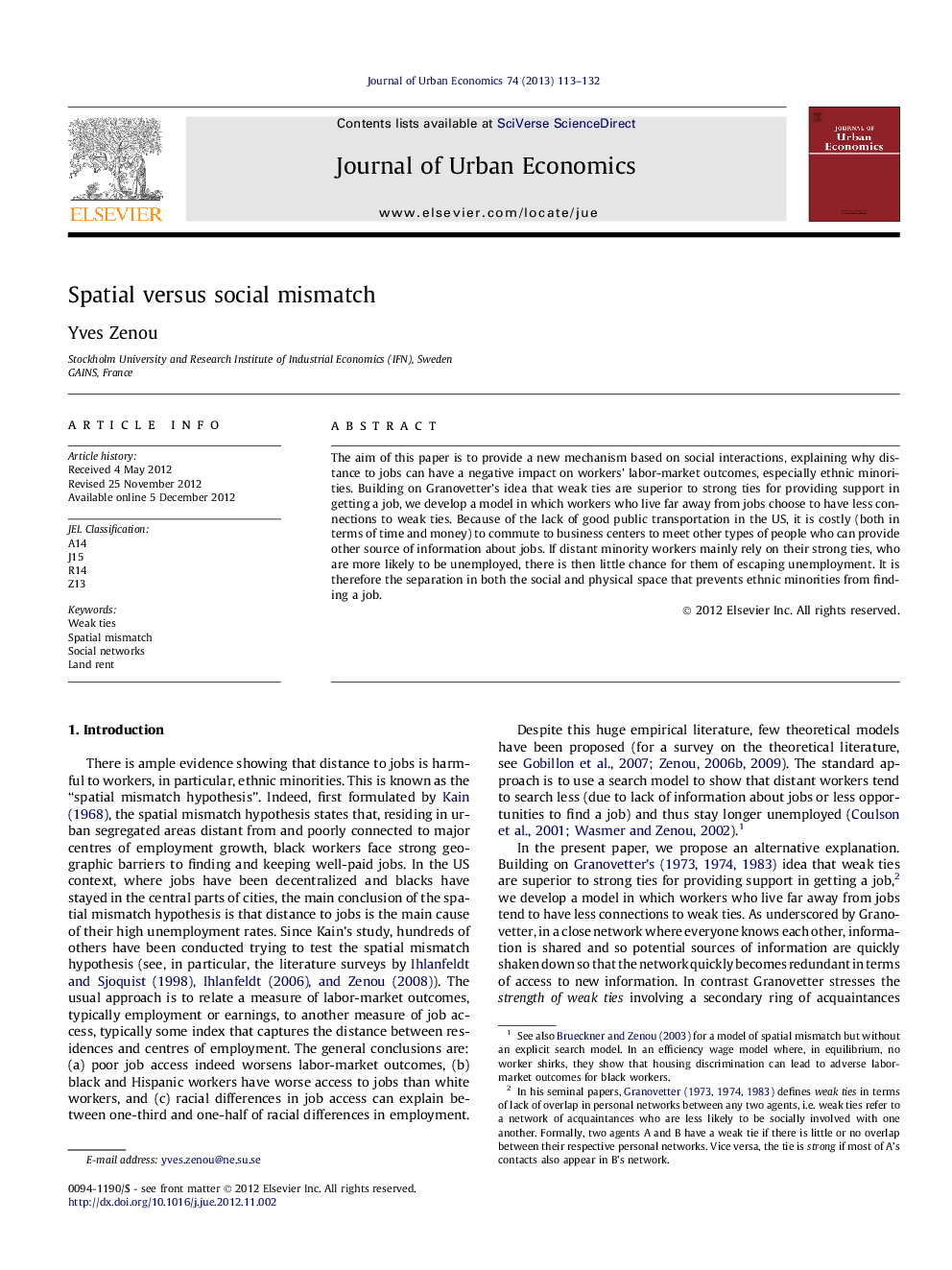| Article ID | Journal | Published Year | Pages | File Type |
|---|---|---|---|---|
| 970794 | Journal of Urban Economics | 2013 | 20 Pages |
The aim of this paper is to provide a new mechanism based on social interactions, explaining why distance to jobs can have a negative impact on workers’ labor-market outcomes, especially ethnic minorities. Building on Granovetter’s idea that weak ties are superior to strong ties for providing support in getting a job, we develop a model in which workers who live far away from jobs choose to have less connections to weak ties. Because of the lack of good public transportation in the US, it is costly (both in terms of time and money) to commute to business centers to meet other types of people who can provide other source of information about jobs. If distant minority workers mainly rely on their strong ties, who are more likely to be unemployed, there is then little chance for them of escaping unemployment. It is therefore the separation in both the social and physical space that prevents ethnic minorities from finding a job.
